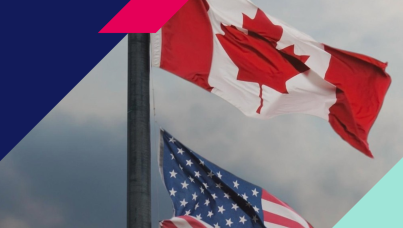Four In Ten (38%) Employed Canadians Don't Use All Of Their Vacation Days...
Nine in ten (91%) Canadians who have ever taken a vacation think that taking advantage of vacation time with the important people or person in their life creates closer relationships, and two-thirds (66%) of Canadians say the last time they took a vacation with the important people or person in their life was "one year ago, they make time for vacations every year."
A further 93% of Canadians think it's important for people to use all of their vacation time to help relieve stress and 46% say, after returning home from a vacation they generally feel "refreshed and ready to work."
These are the findings of an Ipsos-Reid/Expeida.ca poll conducted from June 22nd to June 24th, 2004. For the survey, a representative randomly selected sample of 1000 adult Canadians was interviewed by telephone. With a sample of this size, the results are considered accurate to within 177 3.1 percentage points, 19 times out of 20, of what they would have been had the entire adult Canadian population been polled. The margin of error will be larger within regions and for other sub-groupings of the survey population. These data were weighted to ensure the sample's regional and age/sex composition reflects that of the actual Canadian population according to the 2001 Census data.
Four in ten (38%) employed Canadian adults do not use all of their vacation days. Specifically, 14% say they use "most" of their vacation days, 18% use "only some," and 6% use "none" of their vacation days. In total, 60% of employed Canadian adults say they use "all" of their vacation days. Another 6% say they "do not get vacation days."
- Residents of Quebec (69%) are most likely to use "all" of their vacation days, followed by residents of British Columbia (64%), Atlantic Canada (64%), Saskatchewan/Manitoba (57%), and Ontario (56%). Residents of Alberta (41%) are the least likely to use "all" of their vacation days.
- Those 35 years of age or older are more likely than those 18-34 years of age to use "all" of their vacation days (63% vs. 54%).
- Those with an annual household income of $60,000 or greater are more likely than others to use "all" of their vacation days (65% vs. 55%).
- There are no statistically significant demographic differences for this question.
- Residents of Alberta (96%) are most likely to feel this way, followed by residents of British Columbia (94%), Atlantic Canada (94%), Quebec (92%), Ontario (89%), and Saskatchewan/Manitoba (83%).
- Those with an annual household income of $30,000 or greater are more likely than others to feel this way (93% vs. 88%).
- Residents of Quebec (73%) are most likely to have taken a vacation with the important people or person in their life one year ago, followed by residents of British Columbia (66%), Alberta (65%), Ontario (65%), Saskatchewan/Manitoba (59%), and Atlantic Canada (58%).
- The likelihood of making time for vacations with important people every year increases with level of annual household income: 50% of those whose annual household income is less than $30,000 last took a vacation with the important people in their life one year ago; 64% of those with an annual household income of $30,000-$59,999 did so; and 79% of those with an annual household income of $60,000 or greater did so.
- Residents of Atlantic Canada (98%) are most likely to feel this way, followed by residents of Quebec (94%), British Columbia (94%), Ontario (93%), Saskatchewan/Manitoba (91%), and Alberta (89%).
- Canadians with a high school diploma are more likely than others to feel this way (94% vs. 85%).
- Residents of Quebec (53%) are most likely to feel "refreshed and ready to work," followed by residents of British Columbia (47%), Ontario (44%), Atlantic Canada (42%), Saskatchewan/Manitoba (41%), and Alberta (36%).
- The likelihood of feeling "relaxed but not looking forward to going back to work" decreases with age: 45% of those 18-34 years of age say they feel this way, 36% of those 35-54 years of age say they feel this way, and 23% of those 55 years of age or older say they feel this way.
- Canadians with a high school diploma are more likely than others to feel "refreshed and ready to work" (47% vs. 32%).
-30-
For more information on this news release, please contact:
John Wright
Senior Vice-President
Ipsos-Reid Public Affairs
(416) 324-2900



